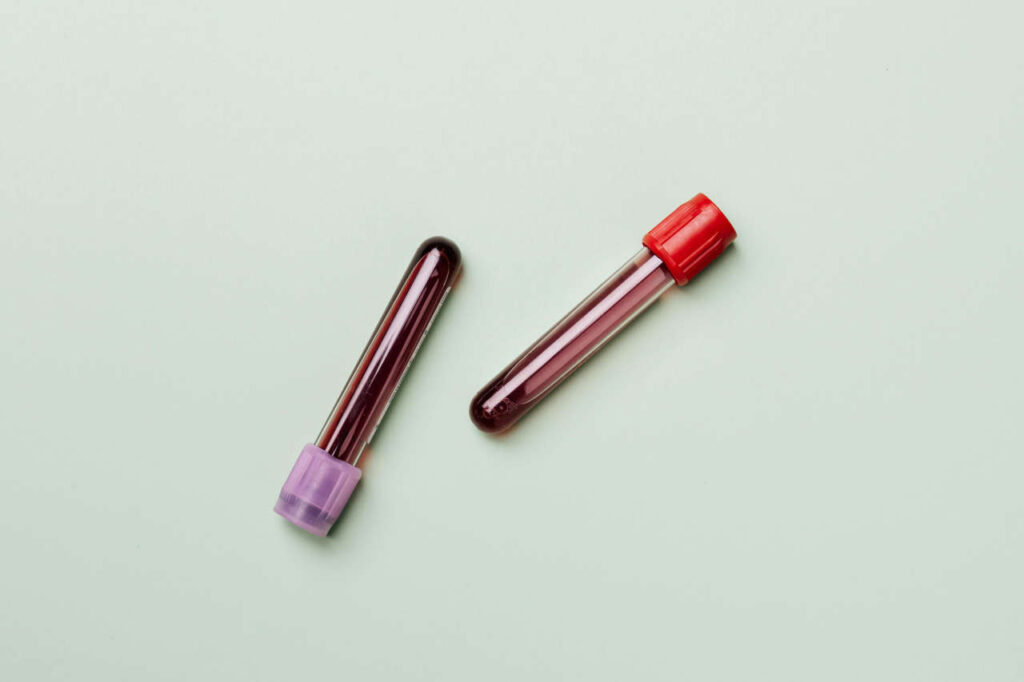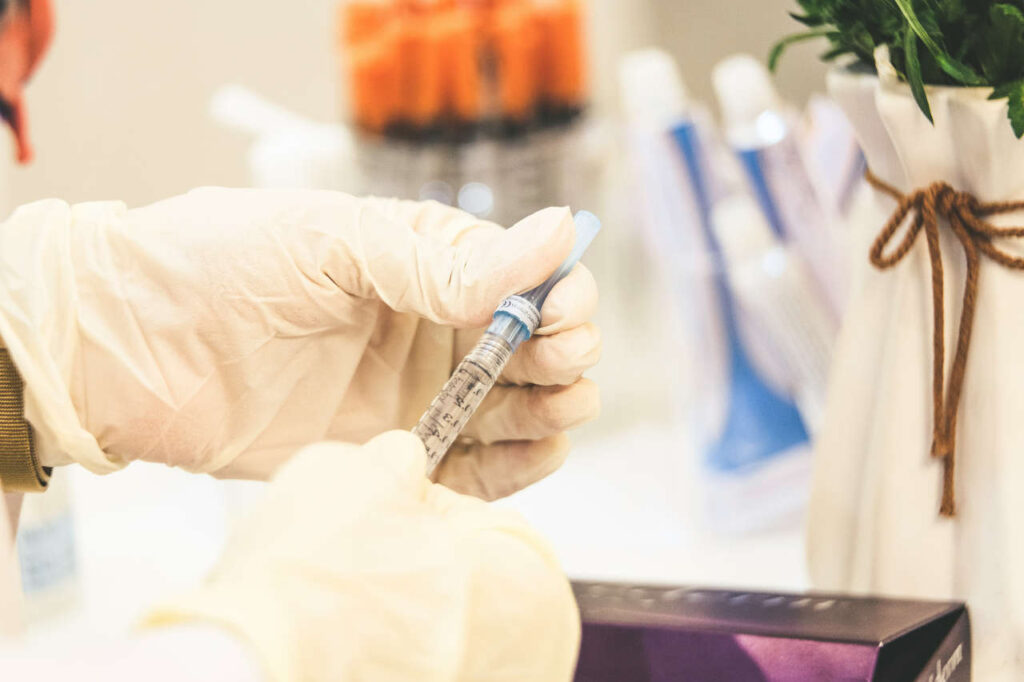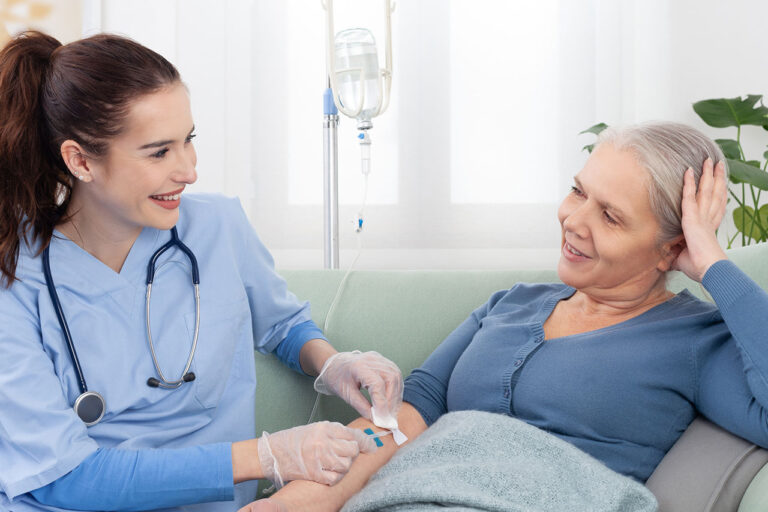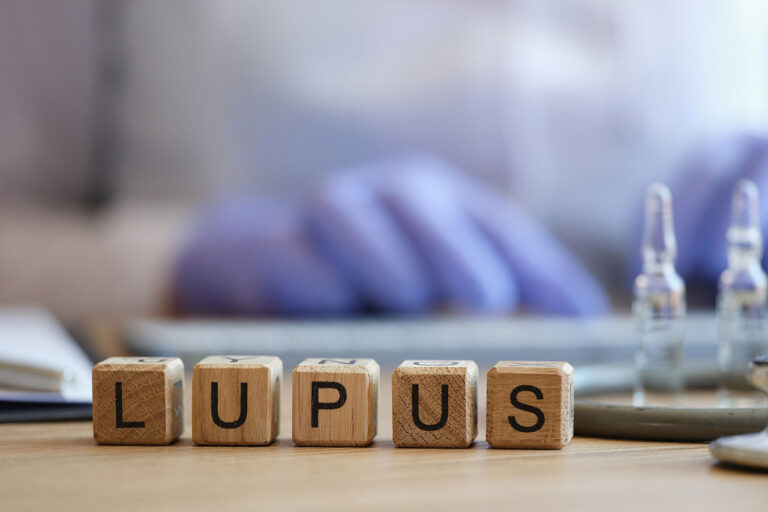
Lymphoma is a type of cancer that affects the immune system. Over 80,000 people are diagnosed with this cancer every year and turn to chemotherapy and radiation therapy to fight it.
Get Your IVIG Dose – At-Home Infusion
But another option for treating this form of cancer is intravenous immunoglobulin (IVIG) therapy. While IVIG is not lymphoma’s first-line treatment, it’s a noteworthy therapy with significant potential.
Below, we will explore the research looking at the effectiveness of IVIG for lymphoma.
Understanding Lymphoma
Lymphoma is a type of blood cancer that starts in the lymphocytes. Lymphocytes are white blood cells that are a part of your immune system and are responsible for fighting infectious agents, such as bacteria, viruses, and fungi.
Lymphocytes are present throughout your body in areas like the lymph nodes, spleen, and bone marrow. When these cells change and grow uncontrollably, they cause lymphoma. The cancer can progress at a fast or slow pace. In certain cases, IVIG therapy might be considered to manage immune-related complications in lymphoma patients.
Many people mistake lymphoma for other blood disorders. Diseases like chronic lymphocytic leukemia and hemophagocytic lymphohistiocytosis are two of them. However, these conditions are not the same because they each start in different types of cells.
Types of Lymphoma
Lymphoma has 2 primary types as well as over 70 subtypes. The 2 main types of lymphoma are:
- Non-Hodgkin’s Lymphoma: Non-Hodgkin is the most common form of lymphoma that accounts for nearly 4% of all cancers in the US and can start at any part of the body.
- Hodgkin’s Lymphoma: Hodgkin accounts for 0.5% of all cancers in the US. It differs from non-Hodgkin due to the presence of Reed-Sternberg cells. This type of lymphoma typically starts in the upper body.
Both types of lymphoma may benefit from IVIG treatment.
Symptoms of Lymphoma
The warning signs of lymphoma can include:
- Itching
- Fatigue
- Coughing
- Chest pain
- Night sweats
- Abdominal pain
- Fever and chills
- Reduced appetite
- Unexplained weight loss
- Shortness of breath (dyspnea)
- Painless, swollen glands (in the neck, armpit, or groin)
Using IVIG for lymphoma can alleviate these symptoms and slow the progression of the disease. However, note that these symptoms can also be signs of other diseases. If you experience any of them, consult a healthcare provider immediately.
Causes of Lymphoma
Before understanding how IVIG might help with lymphoma, it’s important to learn what causes this disease. Like other cancers, lymphoma occurs due to genetic problems that cause cells to grow out of control.
You might be at a higher risk of developing lymphoma if you:
- Are male
- Have a weak immune system
- Have an autoimmune condition
- Have a family history of lymphoma
- Are between 15 and 40 (Hodgkin) or over 60 (non-Hodgkin)
- Have been infected with viruses like HIV, Epstein-Barr, or Kaposi sarcoma human immunodeficiency virus
Diagnostic Tests for Lymphoma

The first step your healthcare provider takes to diagnose lymphoma and decide whether IVIG is suitable for you is doing a physical examination and checking your medical history.
Further tests for confirming the diagnosis include:
- MRI
- Biopsy
- PET scan
- Blood tests
- Chest X-ray
- Molecular test
Once the healthcare provider confirms your condition, they can determine whether to use IVIG for your lymphoma or turn to other therapies.
Treatments for Lymphoma
Lymphoma is a very treatable type of cancer. However, the best course of treatment will depend on the type and stage of the disease.
The most common treatments for lymphoma are:
- Chemotherapy: Medications that kill cancer cells
- Radiation Therapy: High-powered energy beams that destroy cancer cells
- Bone Marrow Transplant: Infuses healthy bone marrow stem cells into your body to rebuild bone marrow and healthy lymphocytes
- IVIG: Provides the body with antibodies (a type of protein) to help fight off cancer cells
Consult an IVIG Specialist
The Best IVIG Home Infusion | Get IVIG Treatment AssistanceWhat is IVIG and How Can It Help with Lymphoma?
Intravenous immunoglobulin (IVIG) is a therapy that uses antibodies derived from the blood plasma of healthy donors. IVIG is commonly used to treat various conditions, like autoimmune neurological diseases, immunodeficiencies, dermatological issues, and blood disorders like lymphoma.
IVIG’s Mechanism of Action for Lymphoma
IVIG is a concentrated formula of immunoglobulins, which are proteins that function as antibodies in the immune system. These antibodies are crucial in recognizing and neutralizing foreign invaders like viruses and bacteria.
In the case of lymphoma, IVIG therapy can help boost the body’s natural defenses by providing an additional source of antibodies to target and attack cancerous cells.
While the exact mechanism for how IVIG works isn’t well understood, these are some possible ways it might help with lymphoma:
- Interaction of infused antibodies with various components of the immune system and enhancing their ability to recognize and destroy cancer cells
- Modulation of the activity of immune cells, such as T lymphocytes and B lymphocytes, and enhancing their anti-tumor response
- Possible targeting of specific molecular pathways involved in cancer cell growth and survival
- Mitigating the risk of infections in patients who experience immunosuppression as a result of lymphoma
Can IVIG Fight Lymphoma: A Look at Studies
Let’s examine the available research to see if IVIG is effective for lymphoma. Here are some of the most notable studies performed throughout the years.
IVIG and Blood Transfusion Complications
Some patients who receive blood transfusions experience recurrent hemolytic transfusion reactions. A 2005 study evaluated the effects of IVIG therapy on three patients with lymphoma who had these reactions.
After administering IVIG treatment, these reactions went away while hemoglobin levels stayed stable. These results suggest that IVIG can be helpful in those with lymphoid malignancies who experience recurrent non-antibody-mediated hemolytic transfusion reactions.
IVIG as an Anti-cancer Agent
We know that IVIG therapy has the potential to lower inflammation. Researchers in a 2013 study believed that this ability of IVIG contributes to stopping malignant cell growth in lymphoma patients, especially given the relationship between inflammation and cancer.
They reviewed the effectiveness of IVIG in patients with lymphoma and other malignancies like Kaposi’s sarcoma and thyroid cancer. Some had experienced remissions after receiving therapy, pointing to the unrealized potential of IVIG for lymphoma and other types of cancer.
To investigate the effects of IVIG, scientists treated a panel of lymphoma cells with infusions. They also evaluated the effects of IVIG in combination with various other agents. In all cases, treatments successfully suppressed the growth of malignant cells.
The results of this study suggest that IVIG can help suppress lymphoma. They also show that other supplemental anti-cancer agents can potentially intensify the effects of IVIG.
IVIG’s Efficacy in Boosting Immunity
Malignancies like lymphoma can weaken the immune system and make patients more likely to get infections. They typically need antibiotic therapy and other supplemental treatments to fight these infections.
A 1988 study reviewed the effectiveness of IVIG infusion treatment against infectious diseases in patients with severe viral infections.
Scientists found that lymphoma patients who received IVIG therapy experienced less fever, skin lesions, and neuralgia (nerve pain). IVIG also managed to prevent their disease from worsening. A 2015 study assessed the effects of IVIG on infections in people with indolent non-Hodgkin lymphoma.
They examined 57 patients who received a median of 11 IVIG doses over 9.5 months.
Results showed that the incidence of infections were lowered by 46% in those who received IVIG for lymphoma, confirming that infusions can be effective in some patients.
IVIG as an Infection Shield for Chemotherapy Patients
Older patients are at a higher risk of developing lymphoma-related infections. A 2023 study assessed 118 elderly patients with diffuse large B cell lymphoma who received IVIG infusions with R-mini-CHOP therapy.
Those who completed the treatment experienced remission rates of over 79% with fewer infections. Those who didn’t receive infusions had more severe infections.
The results of this study indicate that the combination of IVIG and R-mini-CHOP therapy can be safe and effective against infections.
How to Receive IVIG for Lymphoma?

While IVIG is not the first treatment option for lymphoma, it’s still a safe and helpful treatment that might be able to slow down the disease’s progression and help you fight off infections.
Here is how you can manage your lymphoma with IVIG:
- Consult your healthcare provider to determine if IVIG is the right option for you.
- If your healthcare provider determines that IVIG treatment is right for you, they will write you a prescription.
- Before starting therapy, discuss the costs of IVIG treatment with your provider and talk to your insurance to understand coverage.
- Visit an infusion center or opt for at-home infusion services to receive treatment.
- Follow up with your healthcare provider to assess IVIG’s effectiveness and make the necessary adjustments.
Receive IVIG for Lymphoma from AmeriPharma® Specialty Pharmacy
Speak with your healthcare provider to see if you’re a good candidate for IVIG infusion treatment. If the doctor confirms your lymphoma can benefit from IVIG, you can contact AmeriPharma® Specialty Pharmacy for help.
We offer home infusion services and hard-to-find medications to patients with debilitating conditions such as lymphoma. You can manage your illness with our full-service coordination, 24/7/365 support, and thorough copay assistance.
Our ACHC-accredited specialty pharmacy can service over 40 US states and guide you through the process. Contact us now to speak to a patient navigator and receive specialty care at home.













